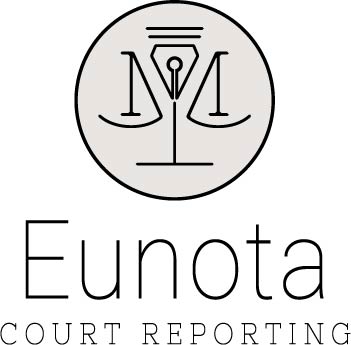What Are Court Reporting Services?
What are court reporting services?
Court reporting services is a broad description that encompasses many roles, functions, and client needs in the legal field. There is a need for court reporters pretty much everywhere, but there are different regulations and rules depending on where you are located. This post will cover these criteria for Moncton, New Brunswick, Canada, but are relevant for most areas.
In Moncton, there are two types of court reporters: those working in the public sector and those working for the private sector. Public sector court reporters are employed by the province of New Brunswick and are expected to provide administrative support for provincial courts. Generally speaking, these roles include operating recording equipment in courtrooms, producing transcripts of public court hearings, and ensuring the necessary paperwork is filled out to complete the first two tasks. Private sector court reporters do essentially the same thing, but focus on out-of-courtroom matters such as discoveries (collecting evidence), arbitration (negotiations), private hearings, and other miscellaneous meetings.
The function of court reporters both in the public and private sector is to provide a third-party service of audio recording, meeting minutes, and/or verbatim transcripts of the discussions had. When there are two sides arguing over divorce, child custody, criminal charges, insurance claims, or other, it is critically important to have an unbiased record of events that both parties can refer to and rely on. Court reporters who record audio evidence must sign a certificate stating that they operated the machine which produced the recording, and all official transcripts produced must include a commissioner of oaths signed affidavit that swears or affirms that material contained in the transcript are accurate to the best of the transcriptionist’s ability. Everything is treated in a very serious matter because it is heavily relied upon when making important decisions in courtrooms, boardrooms, or other. For more information about the different roles that a court reporter has, check out What’s the Difference Between a Typist, Transcriptionist, Stenographer, and Court Reporter in New Brunswick?

If you are going to trial, your case will be assigned a court reporter from the province. If you have been served a notice for examination and will be going to a discovery, a court reporter will be hired by the lawyer/law firm who will be examining you. If you are looking for a court reporter to record your meeting, conference, negotiation, or other, then you will need to find someone on your own. Just ensure that Before Hiring a Court Reporter, Ask These Questions. If you are requiring a transcript be completed to self-represent, you will need to hire a transcriptionist from the freelance list which is available at the Department of Justice Services near you. Eunota Court Reporting is a certified option for transcript production for self-represented parties in civil matters.
Whether you are working with a court reporter in the public or private sector, you should expect a high caliber of accuracy, confidentiality, and respect for the process. A court reporter is in the room to provide an unbiased, third-party record of events that accurately communicates the goings on of important gatherings. They are not there to choose sides, guess who is right or wrong, or play favourites – they are there to help all parties find the truth and to come to the most well-informed decision upon which to move forward. Contact Eunota Court Reporting today to discuss your needs!
.

